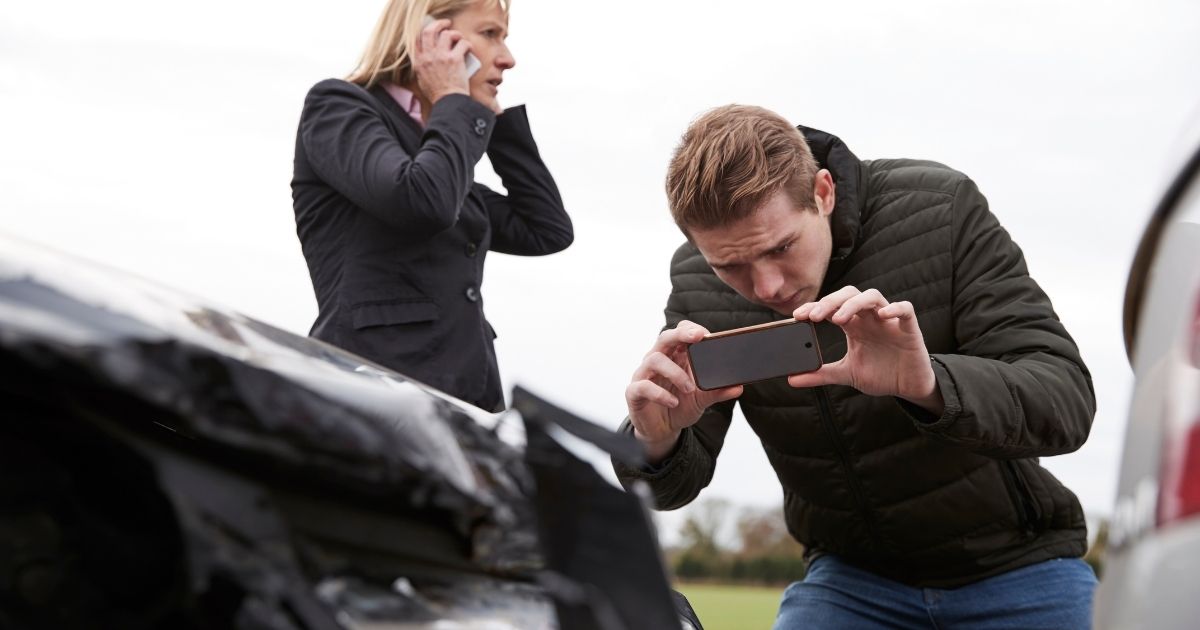Experiencing a car accident is a stressful and unsettling event, even if you have insurance. While insurance is a crucial safety net, it’s essential to know the proper steps to take in the aftermath to ensure a smooth claims process and protect your interests. In this article, we’ll guide you through the necessary actions to take if you find yourself in an accident while being covered by insurance.
- Ensure Safety First: The immediate priority after an accident is safety. Check for injuries and, if needed, call emergency services. If the accident is minor and it’s safe to do so, move your vehicle to the side of the road to prevent further incidents.
- Exchange Information: Exchange information with the other party involved. Collect names, phone numbers, insurance details, and vehicle information. If there are witnesses, gather their contact information as well. This information will be crucial during the claims process.
- Document the Scene: Take pictures of the accident scene, including vehicle damage, license plates, and the surrounding area. These photos can serve as valuable evidence when filing a claim. Note the date, time, and weather conditions as well.
- Contact the Police: In many cases, it’s advisable to contact the police and file a report, especially if there are injuries or significant damage. The police report can be essential when dealing with insurance claims and determining fault.
- Notify Your Insurance Company: Contact your insurance company as soon as possible. Provide them with the details of the accident, including the other party’s information, the police report, and any photos you took. Early notification is key to a swift claims process.
- Follow Insurance Procedures: Your insurance policy will outline specific procedures to follow after an accident. Familiarize yourself with these steps, which may include completing claim forms, providing additional documentation, or scheduling vehicle inspections.
- Seek Medical Attention: Even if injuries seem minor initially, it’s crucial to seek medical attention promptly. Some injuries may not manifest immediately, and a medical professional can document your condition, which may be vital for an insurance claim.
- Coordinate with Towing and Repairs: If your vehicle is not drivable, coordinate with the towing service recommended by your insurance company. Select an approved repair shop to ensure that the repairs meet the insurer’s standards and are covered by your policy.
- Understand Your Coverage: Familiarize yourself with the coverage provided by your insurance policy. Understand the deductibles, limits, and any additional coverages you may have, such as rental car reimbursement or roadside assistance.
- Cooperate with Claims Adjusters: Insurance companies often assign claims adjusters to investigate the accident. Cooperate fully with them, providing accurate information and any documentation they request. Their assessment will play a crucial role in the claims process.
- Keep Detailed Records: Maintain a comprehensive record of all interactions related to the accident. This includes communication with the other party, the police, medical professionals, and your insurance company. These records can serve as a reference if needed later.
- Be Wary of Settlement Offers: If the other party’s insurance company approaches you with a settlement offer, consult with your insurance company or legal advisor before accepting. Ensure that any agreement is fair and covers all present and potential future expenses.
- Review the Repair Estimate: Before authorizing repairs, carefully review the estimate provided by the repair shop. Confirm that the repairs align with your insurance coverage and that you understand any out-of-pocket costs you may incur.
- Monitor the Claims Process: Stay informed about the progress of your insurance claim. Regularly check in with your claims adjuster and address any concerns or questions promptly. A proactive approach can help expedite the resolution.
- Reflect and Learn: After the dust settles, take a moment to reflect on the accident and the claims process. Consider what went well and what could be improved. Use this experience to enhance your understanding of insurance procedures and safe driving practices.
Conclusion:
Having insurance is a valuable resource in the aftermath of a car accident. By following these steps, you can ensure a smoother claims process, protect your interests, and facilitate a faster resolution. Remember that your insurance company is there to support you during these challenging times, and proactive communication with them is key to a successful outcome.

